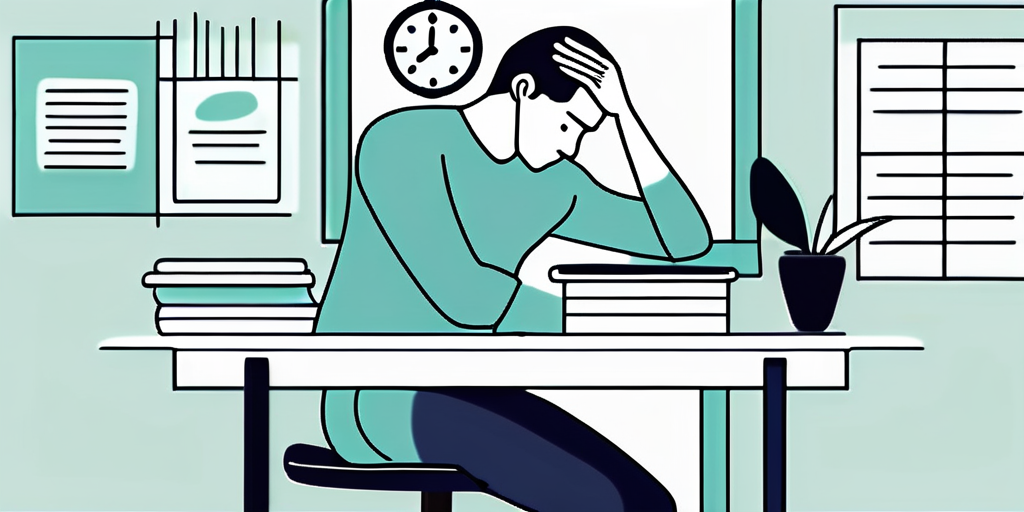Do you often find yourself struggling with tension headaches? You’re not alone. Tension headaches are a common ailment that can greatly impact your daily life. Fortunately, you can reduce the frequency and intensity of these headaches. In this article, we will explore five helpful tips for reducing tension headaches so you can experience relief and get back to living your best, headache-free life.
Understanding Tension Headaches and Their Causes
Before we discuss the tips, let’s first understand tension headaches and their causes. Tension headaches are a dull, aching pain that often wraps around the head. They can be caused by various factors, including stress, muscle tension, poor posture, and even certain foods.
By identifying the underlying causes of your tension headaches, you can better implement the following tips to alleviate them.

The Impact of Stress on Tension Headaches
First and foremost, let’s address the role of stress in tension headaches. Stress is a major trigger for many individuals, leading to increased muscle tension and headaches. While it may be impossible to eliminate stress from your life, learning effective stress management techniques can significantly reduce tension headaches. In the following sections, let’s explore some stress relief strategies.
Tension headaches, or stress headaches, are the most common type of headache experienced by adults. They are often characterized by a dull, aching pain that wraps around the head like a tight band squeezing it. While the exact cause of tension headaches is not fully understood, several factors are believed to contribute to their development.
One significant factor is poor posture. Maintaining an incorrect posture for extended periods can strain the muscles in the neck and scalp, leading to tension headaches. Be mindful of your posture throughout the day and make necessary adjustments to avoid unnecessary muscle strain.
In addition to poor posture, stress and anxiety play a significant role in tension headaches. When stressed, our bodies tend to tense up, leading to muscle tension in the head and neck. This tension can result in headaches that can range from mild to severe. Therefore, finding effective stress reduction techniques, such as deep breathing exercises, meditation, or engaging in hobbies, can be beneficial in managing tension headaches.
Another common trigger for tension headaches is dehydration. When our bodies are not adequately hydrated, it can lead to various health issues, including headaches. It is essential to drink enough water throughout the day to keep our bodies hydrated and prevent tension headaches from occurring.
Lastly, poor sleep habits can also contribute to tension headaches. When we do not get enough restful sleep, our bodies become more susceptible to headaches. Establishing a consistent sleep routine and creating a relaxing environment in your bedroom can help improve the quality of your sleep and reduce the frequency of tension headaches.
Tip 1: Maintain Good Posture Throughout the Day
The way you hold your body throughout the day can greatly impact the occurrence of tension headaches. Slouching and poor posture can cause muscle strain in your neck and shoulders, leading to increased tension headaches. Pay attention to your posture and try to sit and stand with your spine aligned to combat this. Consider using ergonomic chairs and pillows to support and alleviate any strain on your muscles.
In addition to maintaining good posture, taking regular breaks from sitting or standing in the same position for extended periods is crucial. Stretching, walking around, and changing positions can help relax your muscles and prevent tension headaches from occurring.
Tip 2: Practice Regular Stretching and Exercise
Physical activity is beneficial for overall health and plays a significant role in reducing tension headaches. Regular exercise helps improve blood circulation, relieves muscle tension, and releases endorphins, natural painkillers. Incorporate activities such as yoga, Pilates, or even a simple stretching routine into your daily routine to help prevent tension headaches.
Additionally, if you spend much time sitting at a desk, take frequent breaks to stretch your neck, shoulders, and back. Simple exercises like neck rotations, shoulder rolls, and side-bends can provide instant relief and reduce the likelihood of tension headaches.
Tip 3: Manage Stress with Relaxation Techniques
As mentioned earlier, stress is a significant contributor to tension headaches. Therefore, implementing effective relaxation techniques can help alleviate both stress and headaches. You can try numerous techniques, such as deep breathing exercises, meditation, mindfulness, and progressive muscle relaxation. Find what works best for you and incorporate it into your daily routine to reduce tension headaches.
In addition to these techniques, consider creating a calming environment in your living and workspace. Dim lighting, soothing music, and comfortable seating can all contribute to a more relaxed atmosphere and help prevent tension headaches.
Tip 4: Stay Hydrated and Maintain a Healthy Diet
Believe it or not, your diet and hydration levels can affect the frequency and intensity of tension headaches. Dehydration can lead to headaches, so drinking adequate water throughout the day is important. Aim for at least eight glasses of water daily to stay hydrated and prevent tension headaches.
In addition to staying hydrated, be mindful of your diet. Certain foods can trigger tension headaches in some individuals. Common culprits include caffeine, alcohol, processed foods, and those high in artificial sweeteners. Keep a food diary to identify potential triggers and consider eliminating or reducing them from your diet to minimize tension headaches.
Tip 5: Consider Chiropractic Care for Tension Headache Relief
Exploring additional treatment options, such as chiropractic care, may be beneficial if you’ve tried various self-care techniques with limited success. Chiropractors specialize in treating musculoskeletal conditions and can provide targeted adjustments to relieve tension and reduce headache frequency. They can also offer guidance on lifestyle changes and exercises to help prevent future tension headaches.
Remember, finding the right combination of strategies may take time and experimentation. Be patient and consult a healthcare professional if your tension headaches persist or worsen. With dedication and a comprehensive approach, you can effectively manage and reduce the impact of tension headaches on your daily life.
FAQs About Reducing Tension Headaches
Now that we have explored five helpful tips for reducing tension headaches, let’s address some frequently asked questions to provide further clarity.
Can medications help with tension headaches?
Over-the-counter pain relievers such as ibuprofen or acetaminophen can provide temporary relief for tension headaches. However, consulting with your healthcare provider before taking any medication is essential.
Can lack of sleep cause tension headaches?
Yes, inadequate sleep can contribute to tension headaches. It is crucial to prioritize sleep hygiene and aim for the recommended 7-9 hours of sleep each night.
Is there a link between eye strain and tension headaches?
Yes, eye strain can trigger tension headaches, especially if you spend extended periods staring at screens. Take regular breaks and practice eye exercises to reduce strain on your eyes.
When should I seek medical attention for my tension headaches?
If your tension headaches become severe, frequent, or significantly impact your quality of life, it is advisable to seek medical attention. Your healthcare provider can assess your symptoms and recommend appropriate treatment options.
Can stress reduction techniques help with tension headaches?
Yes, stress reduction techniques have been proven effective in managing tension headaches. By implementing regular relaxation techniques, you can lower stress levels and minimize the occurrence of tension headaches.
By understanding the various factors contributing to tension headaches, you can take proactive steps to prevent and manage them effectively. Remember to incorporate the tips we discussed earlier, such as practicing good posture, managing stress, and prioritizing sleep, into your daily routine. With these strategies, you’ll be well on your way to a headache-free life.



